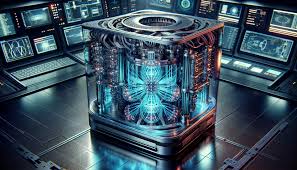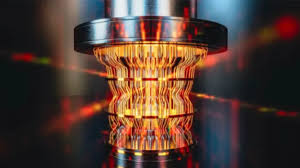Technology
Featured
The Ticking Clock: How Quantum Computers Threaten to Shatter the World's Digital Defenses
Editor
Jun 21, 2025
min read
3 views

In the silent, ongoing arms race of cyberspace, a new superweapon is on the horizon, one that threatens to render obsolete the very foundations of modern digital security. This weapon is the fault-tolerant quantum computer. For decades, the global economy, from banking and e-commerce to national security and personal communications, has been built upon a fortress of public-key cryptography. But as quantum computing advances at an astonishing pace, experts warn that this fortress could soon crumble, creating a 'Quantum Apocalypse' that could expose the world's most sensitive data.
The core of the threat lies in an elegant piece of mathematics known as Shor's algorithm, developed by mathematician Peter Shor in 1994. Today's most widely used encryption standards, such as RSA (Rivest–Shamir–Adleman) and Elliptic Curve Cryptography (ECC), rely on a 'trapdoor' function. They are built on mathematical problems that are easy to compute in one direction but practically impossible for even the most powerful classical supercomputers to reverse. For RSA, this problem is factoring large numbers into their prime components. A classical computer would take billions of years to factor a standard 2048-bit RSA key, making it functionally secure.
A sufficiently powerful quantum computer, however, changes the rules of the game entirely. By leveraging the principles of quantum mechanics, such as superposition and entanglement, a quantum computer running Shor's algorithm could factor that same 2048-bit RSA key in a matter of hours or even minutes. This would effectively blow the trapdoor wide open, allowing an adversary to calculate the private key from the public key, thereby decrypting secure communications, forging digital signatures, and impersonating legitimate parties. Every secure online transaction, every encrypted email, every VPN connection, and every secure software update would be vulnerable.
This impending threat has given rise to a sinister hacking strategy known as 'Harvest Now, Decrypt Later' (HNDL). Malicious actors, including state-sponsored groups and sophisticated criminal organizations, are believed to be actively siphoning and storing vast quantities of encrypted data today. This data—comprising everything from classified government secrets and corporate intellectual property to personal financial and health records—is currently unreadable. However, the perpetrators are stockpiling it with the expectation that within the next decade, they will possess a quantum computer capable of decrypting it all. The secrets of today, protected by what we consider strong encryption, are being harvested for the quantum-powered decryption engines of tomorrow.
"The security of data is defined by its required lifetime," explained Dr. Evelyn Reed, a cybersecurity strategist at a leading technology think tank. "If a government secret needs to remain confidential for 50 years, but a quantum computer can break its encryption in 10, then that data is already insecure. The clock started ticking the moment the data was intercepted." This retroactive threat means that simply waiting for quantum computers to arrive before taking action is not a viable strategy.
The danger extends beyond just RSA and ECC. While symmetric encryption algorithms like AES (Advanced Encryption Standard), which use the same key for encryption and decryption, are considered more resistant, they are not entirely immune. Grover's algorithm, another quantum algorithm, can significantly speed up brute-force attacks against symmetric keys, effectively halving the key strength. An AES-256 bit key, considered the gold standard today, would offer the equivalent of only 128-bit security against a quantum attack, necessitating a move to stronger symmetric keys for long-term data protection.
The global cybersecurity community is now in a race against time. The urgency is palpable as governments, academic institutions, and private companies pour billions into developing quantum-resistant technologies. The question is no longer if, but when, a cryptographically relevant quantum computer will emerge. As the hardware continues to advance, the window to upgrade the world's entire cryptographic infrastructure is rapidly closing, and the consequences of inaction could be catastrophic.
Editor
League Manager Editorial Team








Leave a Comment